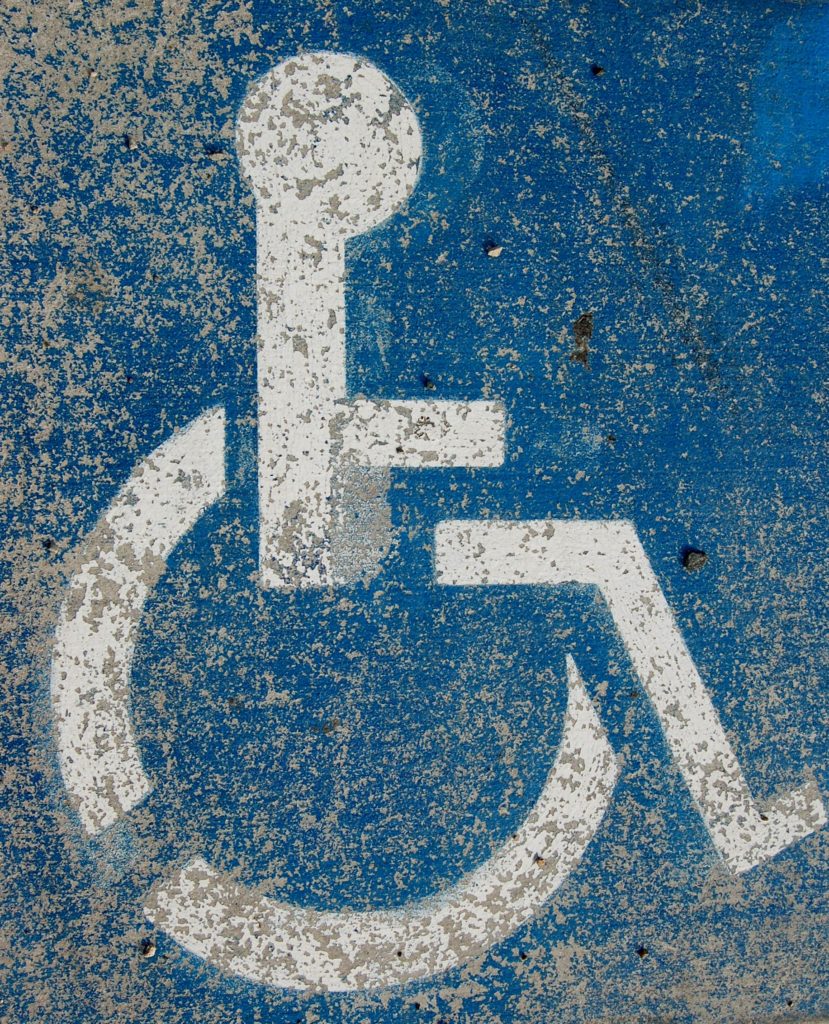

There isn’t a whole lot of information out there regarding special needs spouses, and/or disabled spouses. That said I was able to come up with six important things to know if you’re divorcing or are a special needs spouse.
Note that there is much more information on having special needs children of the marriage, which could and may be dealt with in a whole different (future) post.
I want to focus here what you can expect during divorce if special needs are a part of your situation. Obviously, disabilities refer to any sort being physical or cognitive or degenerative.
To begin with, the Canada Divorce Act does not address special needs situations. However, section 15.2 (6) outlines the objectives of spousal support to determine duration and amounts. For example, they look at the recipient’s ‘need’ and the payor’s ‘ability to pay’. Special needs will be addressed and evidence submitted to evaluate your special needs under that section of the divorce act.
(1) Whether it’s you, or the abled spouse’s idea to separate makes no difference to the outcome of property division or support orders.
(2) The disabled/special needs spouse retains parental rights of minor children of the marriage even if that requires support and assistance. (Reference: SpecialNeedsAlliance.org)
(3) Costs to replace the parental involvement of the abled spouse will be considered, and may come from private funds or Medicaid.
(4) The abled spouse (or primary income earner) will often be obliged to continue support in the form of alimony or spousal support for longer duration than the average, due to the disabled spouse’s limited ability to become self sufficient.
(5) Whether you, as the disabled spouse, have an existing first person “special needs trust” set up, will impact your amount of support from the ex-spouse. In other words, the greater your special needs trust fund, a lesser amount of support may be ordered depending on a few variables. For example, if the source of funds came from your spouse then this may reduce their ongoing support payments and/or give them a right to a portion of it in the division of assets. On the other hand, if the source of the fund came solely from you (the disabled spouse), then it is likely to remain yours outright, and have less impact on the amount of support you’ll receive ongoing.
If the disabled spouse does not yet have a special needs trust set up, one can be set up during divorce (a third party trust) to hold their share of marital asset division and/or alimony payments. Having the monetary value of the divorce in trust will reduce the impact this money has on the disabled spouse’s ability to continue collecting social assistance from Medicaid, for example. (see the last link at the bottom of the post for more on the difference between first and third party disability trusts)
(6) State (in U.S.) and Provincial laws (in Canada) vary regarding trusts, property division, and public assistance for disabled or people with special needs. To ensure your best interests are being met, you must retain a family law attorney in addition, consider consulting a trust and tax attorney.
6 things to consider if you're a special needs/disabled spouse during divorce. Share on XThe most important things to consider if you are getting a divorce, and you are a special needs spouse, is that the division of assets and parenting rights are the same as any regular divorce. However, whether you already have a Special Needs Trust Fund (first party, that you control) may effect how much support you will receive from your spouse. In addition, the results of the divorce property settlement and support orders, will also have a bearing on your ability to continue claiming social assistance. It’s an intertwined puzzle for lawyers to determine the most suitable settlement for you in the long-term.
Ultimately, your divorce lawyer should consult a tax and trust law attorney. This way they can ensure you are getting the best results in determining your support, parenting rights but without jeopardizing your social assistance.
It’s essential that you seek legal advice in your city/Country to understand your rights and vulnerabilities during divorce as a disabled/special needs spouse.
Resources
When People With Disabilities Divorce
Divorce and Special Needs Planning
Special Needs Trust Law and Legal Definition (U.S.)
This is not legal advice.
Do you know someone with special needs going through a divorce?
Comments are closed.
Design by ThemeShift.
AstroTalk
July 29, 2019 at 10:28 pmThank you Lissa, It will really helps to lot of couples who are taking divorce after getting tired from their marriage life.
divorce settlements Brisbane
June 14, 2019 at 12:40 amYou need a good lawyer when undergoing divorce. They will put your best interest in the divorce.
lisa
June 15, 2019 at 9:48 amAbsolutely true.
Louis Webber
May 17, 2019 at 12:31 amInteresting insights, Lisa! I love everything you mentioned here and how you keep things simple is admirable. Divorce is a sensitive discussion and some people, during the peak of their emotions, forget to pay attention to other needs. You approach divorce on a different perspective, legalities included as well as the emotional factors. It feels great to have you as a divorce resource. Looking forward to reading more from your blog soon. Thanks for sharing this post. Cheers!
lisa
May 17, 2019 at 6:53 pmThank, Louis. 🙂
Jane Thrive
May 16, 2019 at 11:18 amSuch a great and thoughtful post! In our diverse world, it’s good to have a resource that takes a look at all different variables that come with divorce. <3 <3 <3 hugs and love!!
lisa
May 17, 2019 at 6:52 pmThank you, Jane! that’s what I was thinking when I wrote this one. xo
Suzanne @ The Bookish Libra
May 12, 2019 at 10:51 amThis is not something I’ve ever put a lot of thought into but probably should since my mother-in-law is in a wheel chair and requires special care. Thankfully her relationship with her husband is good but situations do change over time, so thanks for giving me something to think about.
lisa
May 12, 2019 at 9:32 pmYes, I’m sure your MIL will remain stable in her marriage but there are many who aren’t and it’s a shame to think there would be no way out. Thanks for stopping by, Suzanne 🙂
in Desert safari dubai
May 12, 2019 at 1:35 amThat would be a nightmare in my opinion to figure all of that out unless you had a good attorney on board and that both parties were “playing fair” so to speak.
lisa
May 12, 2019 at 9:31 pmYes, I agree.
Donna Merrill
May 10, 2019 at 6:08 amHi Lisa,
So great to connect with you!
Wow..I never considered a special needs divorce but so glad you brought this up. Anything can happen in a marriage. If one of the people happens to have special needs, it is wise for them to set up a special needs trust. (again which I have not heard of.)
I have a friend that is staying in her marriage because of her husband’s special needs after a stroke which left him paralyzed. She was on the verge of divorce when this happened, but would have to support him if she left. Here in the U.S. she became the sole caretaker. I have to show her this article you have written. Maybe there is a legal way for her to “escape” lol.
-Donna
lisa
May 12, 2019 at 9:30 pmHi Donna, You too! Yes, I’ve heard similar stories regarding sick spouses but also that the marriage was about to end right before. Not an easy situation and of course, people have to do what is best for them. Indeed, support will be in the settlement of such a divorce. I hope you have a chance to share this with your friend and that it helps her. Cheers, Donna and thanks for stopping over.
Christine Carter
May 8, 2019 at 9:02 amLisa, thank you for tackling yet another important and much-needed topic to address. I appreciate all the advice and wisdom you have to offer and I’m sure your work is helping so many through the hard situations and circumstances that occur through a divorce.
lisa
May 8, 2019 at 2:53 pmThank you so much, Chris! I sure hope the ones who need this info find their way here. 😀
Mabel Kwong
May 6, 2019 at 4:04 amSuch an interesting point of discussion, Lisa. It’s not something I’ve ever thought about, and your post did make me ponder. With a special needs partner, you’d need to support them financially and emotionally – and something like a divorce could be very hard for them. After all, you might be their go-to person for everything and getting by every day. The idea of a trust fund seems wise for the person with disability, knowing they have funding to rely on but I guess it can get complicated if the spouse contributes – and who contributes can affect who gets what after a divorce. Thank you for sharing such insightful topics, Lisa.
lisa
May 7, 2019 at 6:28 pmYes, not an easy situation. You’ve recapped the topic well, Mabel. I give you an A+ 😀 Thanks for stopping over, always so nice to hear your perspective.
Balroop Singh
May 3, 2019 at 12:44 pmYour sensitivity toward the special needs divorce is praiseworthy Lisa. I am deeply touched by your efforts to simplify rules to help. You are indeed a wonderful divorce resource person. Stay blessed!
lisa
May 4, 2019 at 9:34 amAw, thank you, Balroop! I sure hope it helps someone out there looking for this kind of info. xx
Tamara
May 3, 2019 at 7:20 amI actually do! And it’s super tough. As always, you cover such a wide range of still related topics.. It’s really inspiring! My friend is super scared for the future.
lisa
May 3, 2019 at 9:28 amOh, interesting. I bet it’s a very hard adjustment to be ‘alone’ to face their special needs or disability. Hopefully they have a good family law attorney to assist them with the complex issues of support vs. benefits, and social assistance. Thank you, Tamara!
Kimberly
May 3, 2019 at 3:52 amI honestly never even thought that there were different provisions and the like for a divorce of this nature. But yes, that makes sense. That would be a nightmare in my opinion to figure all of that out unless you had a good attorney on board and that both parties were “playing fair” so to speak. It would get even trickier if a parent with a disability divorced and they had a child with a disability and was receiving benefits.
lisa
May 3, 2019 at 9:25 amI hadn’t thought of it either, Kim. It just occurred to me randomly as a question “What would it be like to get a divorce if I was a paraplegic?” then I decided to look into it. the thing is, a person can become disabled or develop special needs long after the marriage (in sickness and health and all that) but does that mean you have to remain if you’re not in a good relationship…lots of thoughts. I read in one of the articles, that often the able-bodied spouse will continue to assist their ex but it would take a great deal of loyalty in my opinion. Yes, a good lawyer and consulting the trust and tax lawyer would also help as far as benefits etc. Whew, it is kind of complicated. yes, having a child with a disability would also be an added layer.
Lisa
May 2, 2019 at 10:49 pmThanks, Deb! You’re right it doesn’t matter when it comes to asset division. That’s the good news 😊
DGKaye
May 2, 2019 at 1:17 pmExcellent thoughts here Lis. I shouldn’t think that being handicapped would have anything to do with property division. 🙂